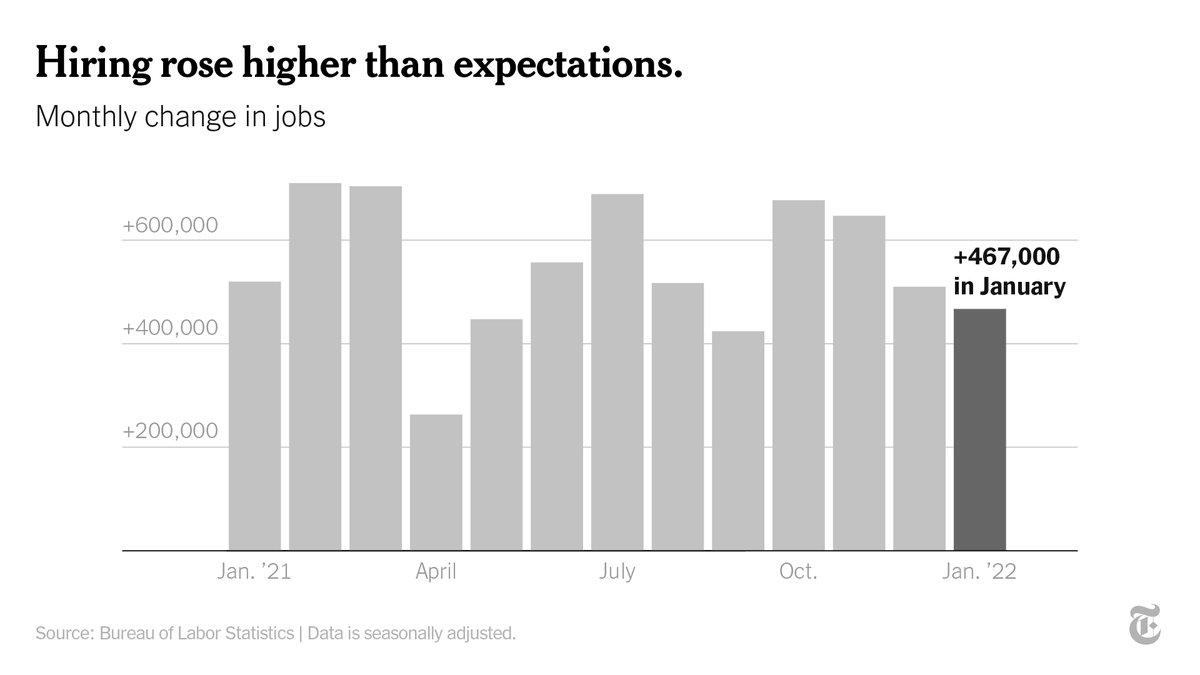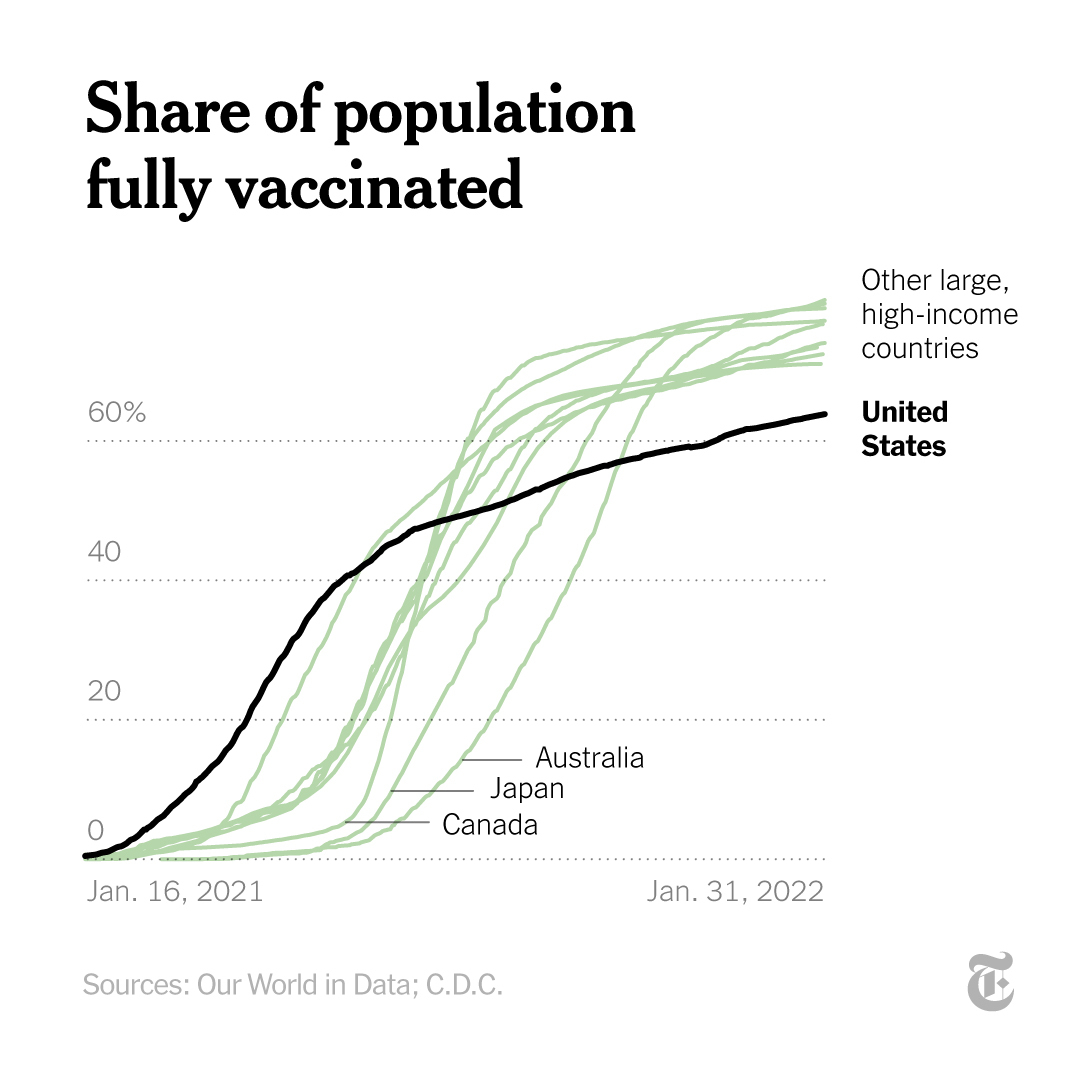
A record spike in coronavirus cases in the U.S. wasn’t enough to derail the job market recovery at the beginning of the year.
The economy added 467,000 jobs in January. Here's what else we learned from the jobs report. nyti.ms/3Hsavpi
The economy added 467,000 jobs in January. Here's what else we learned from the jobs report. nyti.ms/3Hsavpi

Despite the growth in employment, there are still nearly three million fewer jobs now than before the pandemic. If you take population growth into account, an expert said, the shortfall is 4.5 million. nyti.ms/3Hsavpi 

One of the sectors where employment is higher than it was before the pandemic is business services, with 511,000 more jobs than in February 2020.
In January, leisure and hospitality led the job growth. nyti.ms/3Hsavpi
In January, leisure and hospitality led the job growth. nyti.ms/3Hsavpi

Even with strong job growth, there was one clear sign of Omicron’s effects on the economy: More than 3.6 million Americans were absent from work in January because of illness, more than at any point in the pandemic. That’s more than 2% of the entire work force. 

The data was collected at a time when coronavirus cases topped 800,000 a day, leading economists to expect a weak report. That didn't happen.
“Clearly something is different about this surge,” Julia Pollak, the chief economist at ZipRecruiter, said. nyti.ms/3Hsavpi
“Clearly something is different about this surge,” Julia Pollak, the chief economist at ZipRecruiter, said. nyti.ms/3Hsavpi
• • •
Missing some Tweet in this thread? You can try to
force a refresh










